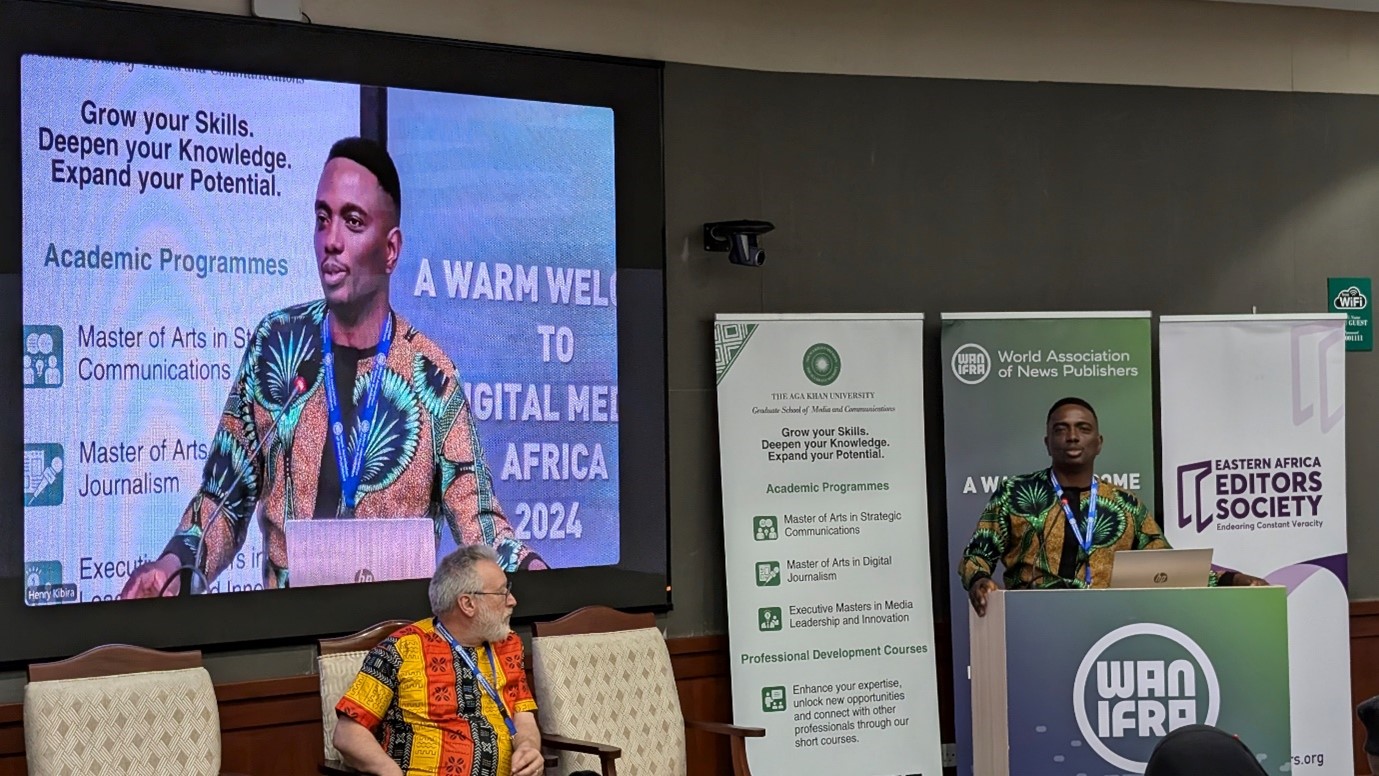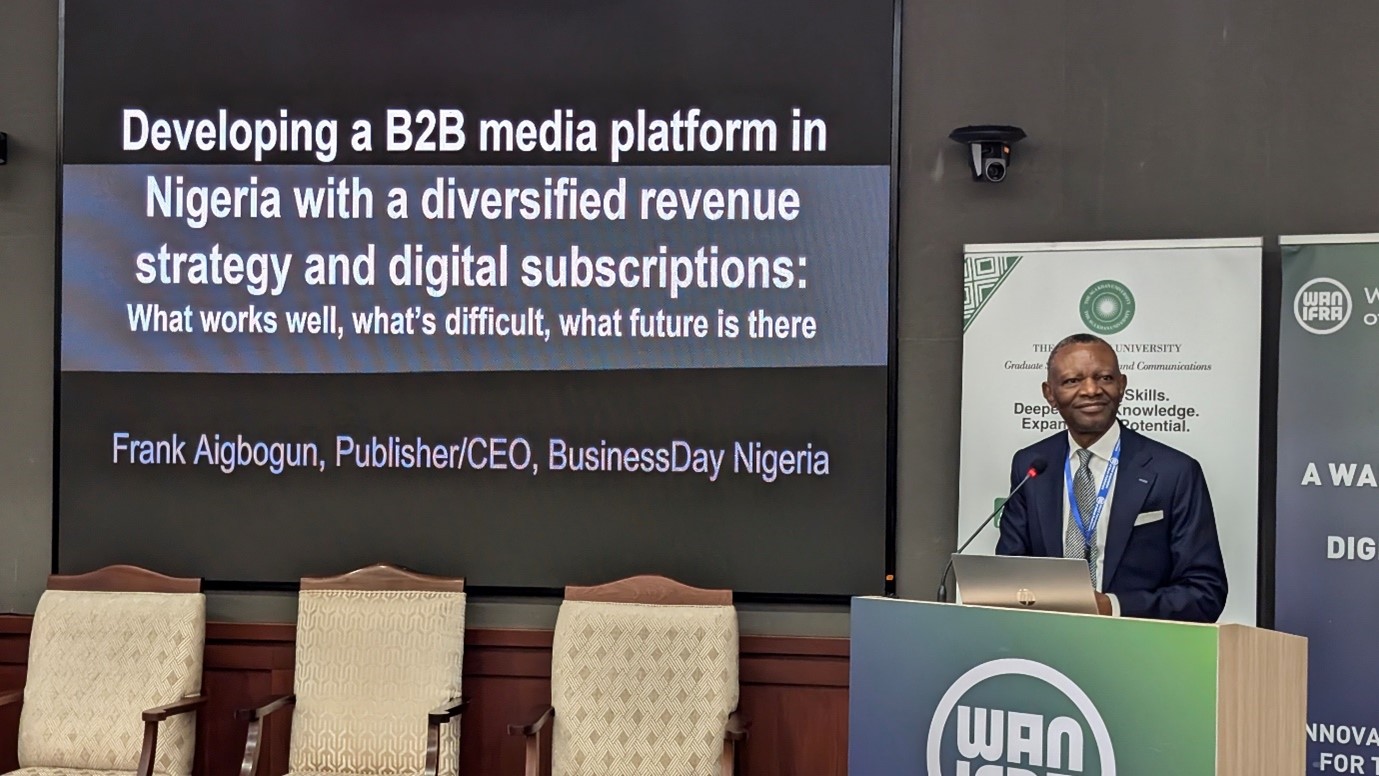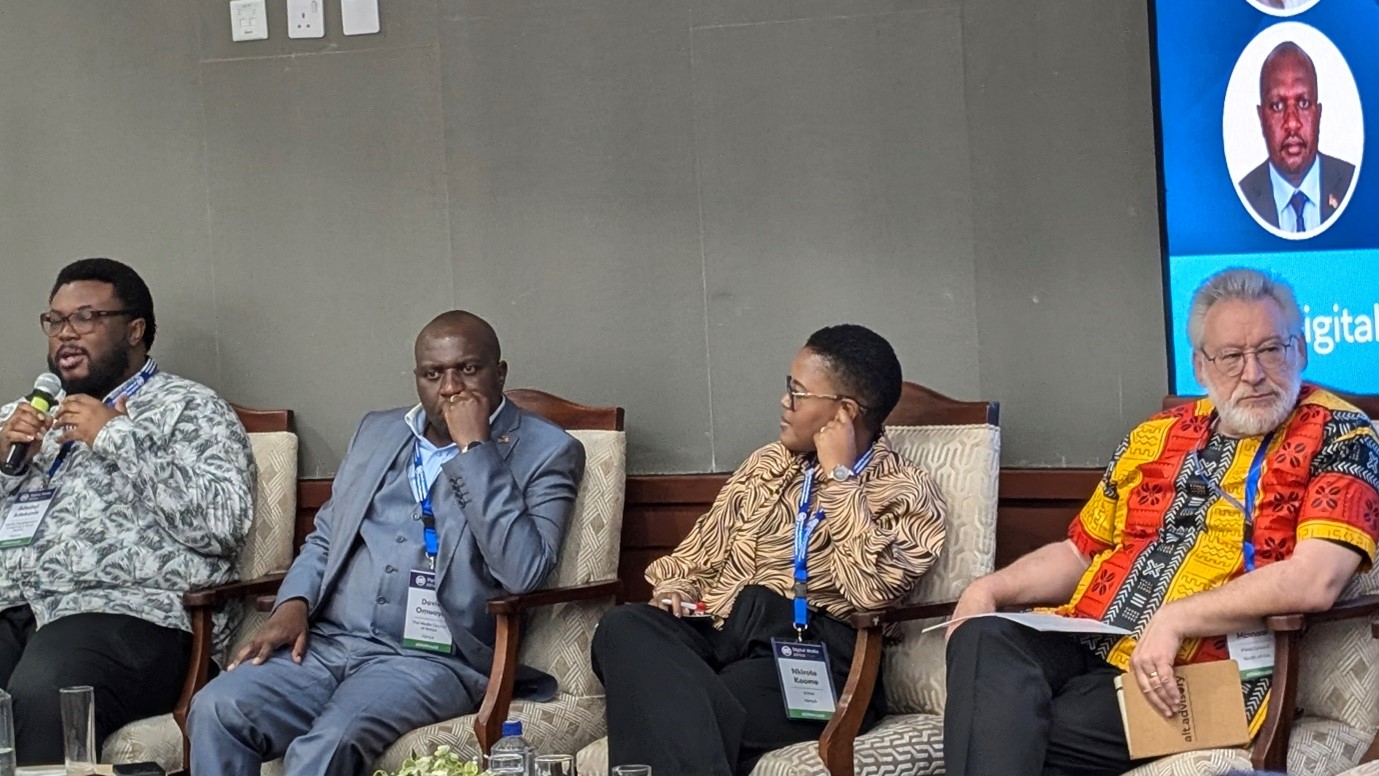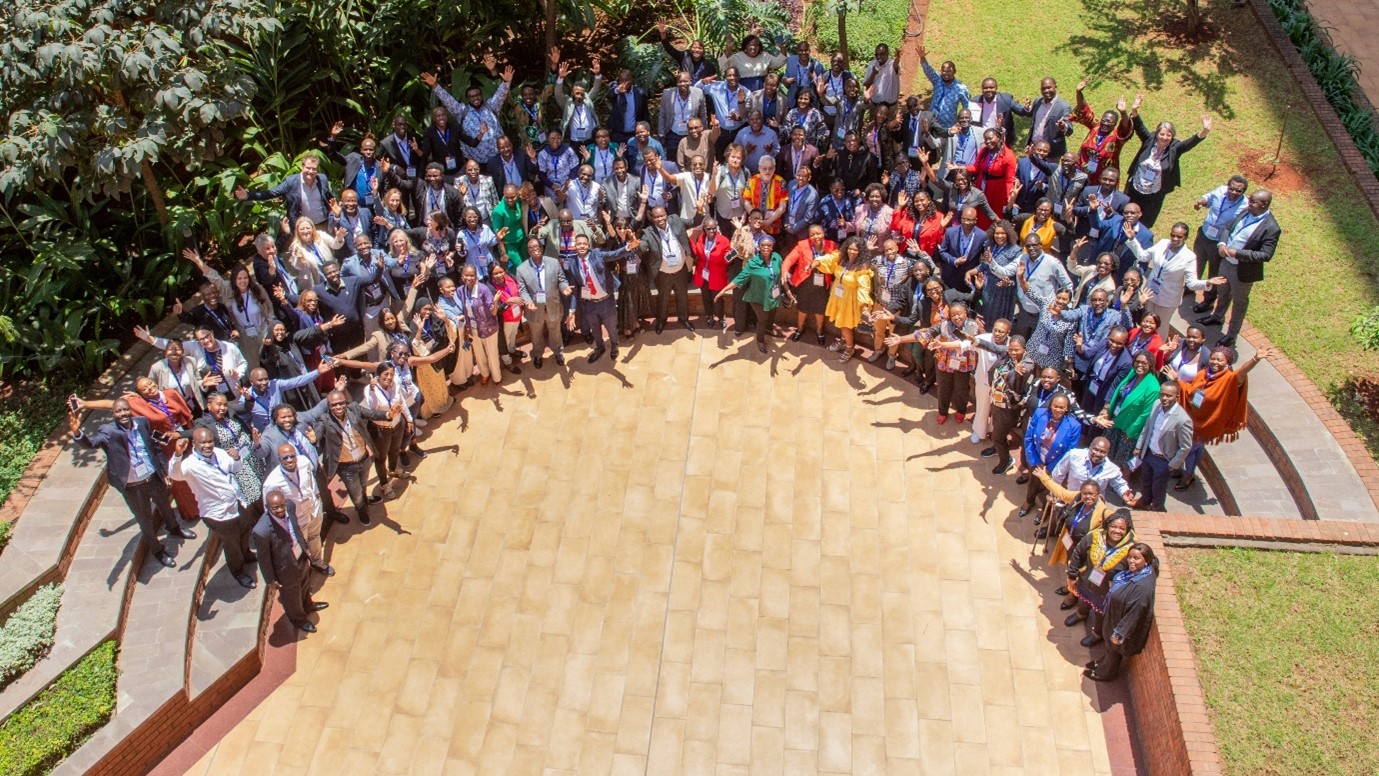By Temitayo Akinyemi
The rapid evolution of digital technologies is reshaping the media landscape globally, and Africa is no exception. Media organizations are now tasked with staying ahead of trends, including leveraging generative artificial intelligence (GAI) and adopting new revenue models to remain competitive. NAMIP’s participation in the Digital Media Africa (DMA) Conference, Nairobi 2024, provided a platform to explore these transformative trends and share strategies with other industry leaders. Here, we share some key insights and learnings from the conference that can benefit media practitioners across Africa.
- Embracing AI in Media: Challenges and Opportunities
Artificial intelligence is becoming a game-changer in the media sector, with the potential to enhance newsroom workflows, automate content creation, and optimize audience engagement strategies. At the DMA Conference, Muyiwa Matuluko from Techpoint Africa highlighted the current state of AI in Nigeria, describing it as a nascent but promising field. Muyiwa Matuluko speaking at DMAfrica 2024 Key takeaways from this session include:
Muyiwa Matuluko speaking at DMAfrica 2024 Key takeaways from this session include:
AI for Content Production: AI tools like natural language processing can support journalists by automating repetitive tasks, allowing them to focus on more impactful reporting.Ethical Considerations: AI’s role in media raises questions about accountability and transparency. There is a need for clear guidelines to ensure that AI-driven journalism maintains high standards of integrity.Training and Adoption Barriers: Despite the potential, AI adoption remains low in many African newsrooms due to a lack of technical skills. Organizations can start small by integrating open-source AI tools and participating in training programs to bridge this gap.
2. Reinventing Revenue Models with Digital Strategies
Another focal point of the DMA Conference was NAMIP’s participation on a panel that discussed the evolving landscape of reader revenue. With traditional ad-based models under pressure, digital paywalls and diversified revenue streams are becoming critical to media sustainability.
 Frank Aignogun speaking at DMAfrica 2024
Frank Aignogun speaking at DMAfrica 2024
Key strategies discussed include:
Paywalls and Subscription Models: Frank Aigbogun of Business Day Nigeria shared insights into how his organization has implemented a paywall and cultivated a dedicated readership. While paywalls can be challenging in Africa, where audiences may resist paying for content, offering high-quality, niche content is key to success.
Events and Sponsored Content: Diversifying revenue sources beyond advertising is crucial. Events, sponsored content, and newsletters are becoming powerful tools for monetization, as highlighted by Frank’s successful shift in Business Day’s strategy.
Audience-Centric Content: Personalizing content for specific audience segments, particularly on platforms like TikTok and Instagram, was another important takeaway. This strategy is especially important as younger audiences increasingly gravitate towards video-rich, interactive platforms.
3. The Future of Media Governance and Regulation
As media becomes increasingly digital, the regulatory landscape must adapt. Deji Adekunle’s session on media regulation touched on the complexities of regulating an industry that transcends borders and operates in the decentralized, digital space. The key points discussed included:
 Deji Adekunle speaking at DMAfrica 2024
Deji Adekunle speaking at DMAfrica 2024
Inclusive Media Regulation: Regulation should involve collaboration between governments, civil society, and media organizations. This is necessary to ensure that laws are equitable, supportive of innovation, and uphold freedom of expression.
Financial Sustainability: Deji emphasized the importance of creating regulatory frameworks that ensure media houses remain financially viable while promoting ethical journalism.
NAMIP’s participation in the Digital Media Africa Conference underscored the importance of innovation, adaptability, and collaboration in today’s media environment. As AI becomes more prevalent and new revenue models emerge, African media organizations must seize these opportunities while addressing the challenges they bring. By leveraging the knowledge and insights gained from this conference, NAMIP’s cohort members are well-positioned to lead the charge in transforming the media landscape across the continent. Additionally, NAMIP participants have also used the co-knowledge sessions as a template for forging new partnerships that will have great long-term positive impact on the Nigerian media industry landscape.

